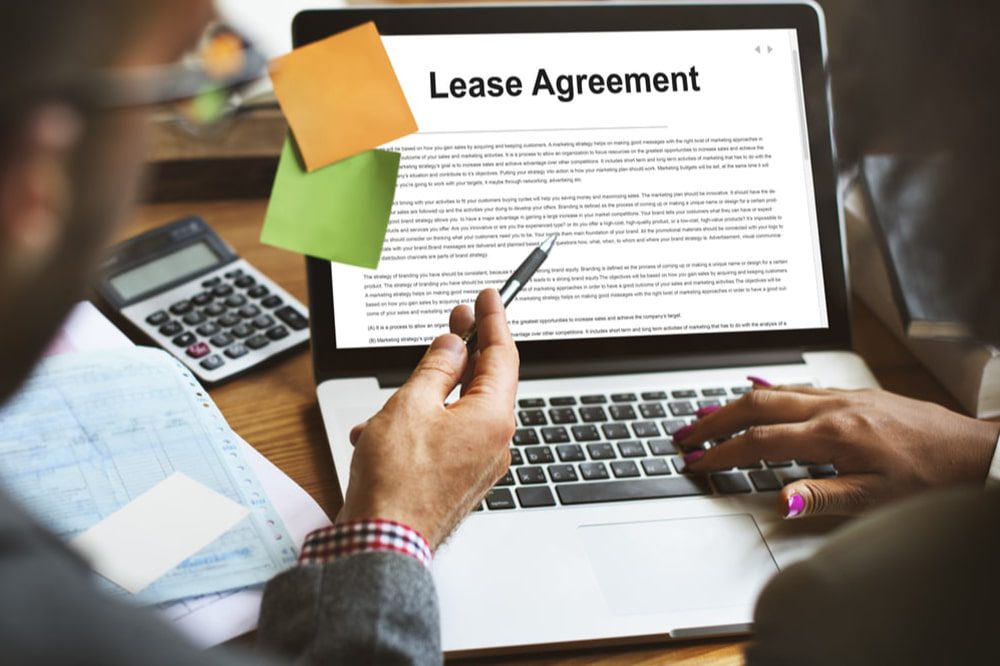SINCE 1988
203-546-7793

Choosing between a short-term and long-term lease is one of the most critical decisions a business must make when securing a commercial real estate property. The length of a lease directly affects business flexibility, financial stability, and overall operational efficiency. Understanding the differences, benefits, and drawbacks of each lease type is essential for making the right choice.
Here’s a comprehensive breakdown of commercial real estate lease terms, the advantages and disadvantages of each option, and how a commercial broker can assist in securing the best lease agreement for a business.
Key Takeaways✔ Startups and fast-growing businesses benefit from short-term leases, while established companies should prioritize long-term stability. ✔ Locking in a long-term lease is wise in rising rental markets, whereas short-term leases provide flexibility in uncertain or declining markets. ✔ Businesses with steady revenue can commit to long-term leases, while those with unpredictable cash flow should opt for shorter agreements. ✔ Retailers and medical offices require long-term leases for consistency, while tech startups and industrial businesses may need flexibility. ✔ Businesses in high-demand areas should consider long-term leases to avoid rent hikes, whereas secondary market locations allow more short-term flexibility. ✔ Negotiating renewal clauses, subleasing rights, and expansion options can help mitigate risks in both short- and long-term leases. ✔ A well-maintained property, fair negotiation terms, and transparent fees make a lease agreement more favorable in the long run. |

Understanding lease terms is crucial for businesses entering the commercial real estate market. The choice between a short-term and long-term lease affects financial commitments, operational flexibility, and strategic planning. Below are the key differences between the two lease structures:
A short-term lease typically lasts between six months and three years, offering businesses greater flexibility. These leases are ideal for companies that anticipate changes in location or size shortly.
Long-term leases typically last between three to ten years or more, depending on the industry and property type. As of the second quarter of 2024, convenience stores with single-tenant net leases in the United States had an average lease term of 14 years, while quick-service restaurants followed closely with an average lease length of 12.6 years. These extended lease durations highlight the importance of location stability for businesses that rely on high customer traffic and consistent operations.
Short-term leases in commercial real estate offer businesses flexibility, but they also come with challenges. Before signing a short-term lease, businesses should carefully weigh the pros and cons to determine if it aligns with their operational needs and financial strategy.
Businesses can adjust quickly to market changes, industry trends, or shifting customer demand. Companies experiencing rapid growth can relocate to a larger space without breaking a long-term contract. This is ideal for businesses that aren’t sure how much space they’ll need soon.
It requires less upfront financial investment compared to long-term leases. Short-term leases are also beneficial for startups, small businesses, and companies that need to allocate capital elsewhere. They also reduce the risk of long-term financial strain if the business does not succeed or needs to pivot.
Businesses can move without facing significant penalties if the current space is not ideal. It provides the ability to test a new market or location before committing long-term and helps companies remain agile and adaptable in response to competitor movements and consumer behavior shifts.
Lease agreements are typically simpler and faster to negotiate with fewer contractual obligations meaning less legal complexity and quicker move-in times. Businesses can avoid lengthy contract reviews that often accompany long-term lease commitments.
If commercial spaces have high vacancy rates, landlords may be willing to offer discounts for short-term leases. Tenants in a strong negotiating position may secure incentives, such as reduced deposits or rent-free months. This is ideal for businesses looking to take advantage of temporary cost savings in a soft rental market.
Landlords often charge premium rates to compensate for the increased risk of frequent tenant turnover. Businesses may pay more per square foot than they would with a long-term lease. There’s less room for rent negotiation, as landlords prioritize long-term tenants for stability.
There is no guarantee that the business will be able to renew the lease under the same terms. The landlord may increase rent significantly or choose a different tenant when the lease expires. Businesses risk disruptions in operations if forced to relocate unexpectedly.
Landlords are often reluctant to approve significant modifications for short-term tenants. Businesses may not be allowed to renovate or customize the space to meet their needs. Short-term tenants may lack the ability to brand the space to create a unique customer experience.
Relocating every few years can result in higher expenses for moving, setting up, and marketing the new location. Businesses must continuously update customers, suppliers, and partners about address changes. There is also an increased risk of downtime or disruptions during transitions between locations.
If rental prices rise, businesses may be forced into higher lease costs upon renewal. Short-term tenants are more vulnerable to market fluctuations, making budgeting more difficult. In highly competitive areas, businesses may struggle to find another space quickly if they need to relocate.
Long-term leases in commercial real estate provide stability and financial predictability but require a significant commitment. While they offer advantages such as cost savings and customization opportunities, they also come with risks, including reduced flexibility and complex negotiations.
It provides businesses with a fixed location for an extended period, essential for brand recognition, and ensures consistent operating costs, making long-term financial planning easier. It also helps customer-facing businesses maintain a stable presence, building customer trust and loyalty.
A report by CBRE indicates that, as of the third quarter of 2023, the average term length for office leases was almost eight years, reflecting a 14% increase over the mean term. This trend suggests that landlords increasingly favor long-term commitments, often offering reduced rental rates and incentives to tenants who sign extended agreements.
Many landlords allow long-term tenants to renovate and customize their space. It enables businesses to create a tailored workspace that enhances productivity and efficiency. Retailers, restaurants, and specialized businesses can brand their locations without concern about short-term lease restrictions.
A long-term lease fosters a stable relationship between the tenant and the landlord. Businesses may have more negotiating power when requesting upgrades or repairs. Landlords are often more willing to accommodate tenant needs over time.
A long-term lease demonstrates commitment and stability, which can be beneficial when securing loans or attracting investors. It helps businesses establish reliability with customers and suppliers who value consistent locations. Large corporations and franchises often require long-term leases to ensure operational security.
It limits the ability to relocate or expand if business needs change. If the location becomes less desirable, businesses may struggle to adjust. Market shifts or neighborhood changes could negatively impact business performance.
Businesses must commit to rent payments for years, regardless of financial performance. If revenue declines, breaking the lease can be expensive and complicated. Long-term leases may include annual rent escalations, increasing costs over time.
Long-term leases require detailed legal review to ensure favorable terms. Some contracts include hidden fees for maintenance, insurance, or property taxes. Renewal terms, subleasing options, and exit clauses must be clearly defined before signing.
Businesses that need to reduce operational costs may struggle with fixed lease obligations. If a company outgrows the space, moving to a larger location may not be an option without financial penalties. Leasing unused space to other businesses can be difficult or restricted by lease terms.
If rental prices drop, businesses with locked-in lease rates may end up paying above-market costs. A once-thriving area can decline in popularity, affecting foot traffic and profitability. Companies in industries with rapid changes may find long-term leases too restrictive.

Determining whether a short-term or long-term lease is the right fit requires careful evaluation of various business factors. Each company has unique needs, and the lease length should align with its operational goals, financial stability, and market conditions. Below are the critical considerations to keep in mind:
Navigating the complexities of commercial real estate leases requires industry expertise. A commercial broker in Newtown, CT, ensures businesses secure the best lease for their needs while avoiding costly mistakes and negotiating favorable terms.
1. Lease Negotiation
A commercial broker ensures businesses do not enter into lease agreements that contain unfavorable terms or hidden costs.
2. Market Insights
The commercial real estate market is constantly shifting, and businesses need up-to-date information to make informed decisions.
3. Finding the Right Space
Selecting a location that aligns with a business’s goals is one of the most important factors in commercial leasing.
4. Avoiding Costly Mistakes
Commercial lease agreements contain complex legal language that can easily lead to financial liabilities if not reviewed properly.
5. Landlord Relations & Conflict Resolution
A broker acts as a middleman between tenants and landlords, ensuring smooth communication and helping to resolve potential disputes.

Long-term commercial leases may allow businesses to deduct rent payments as a business expense, reducing taxable income. However, some leases classify payments differently depending on lease structure, potentially affecting tax liabilities. Consulting a tax professional ensures businesses maximize deductions and comply with IRS regulations.
Early lease termination is possible but often comes with financial penalties, such as lost deposits, lease buyout fees, or continued rent obligations. Some leases include exit clauses, allowing termination under specific conditions like relocation or business closure. Negotiating a flexible lease upfront can help minimize risks if early termination becomes necessary.
Short-term leases may require tenants to obtain their own business liability insurance, while long-term leases often mandate additional coverage, such as property damage or leasehold improvements. Landlords may require proof of insurance for both lease types, with stricter policies for extended commitments. Businesses should review lease terms carefully to ensure compliance with insurance requirements.
Retail businesses often sign long-term leases (5–10 years) to establish brand presence and ensure location consistency. Industrial and warehouse leases typically span 3–7 years due to infrastructure investments and operational stability. Office spaces vary, with startups preferring short-term leases and corporate headquarters securing long-term commitments.
A lease renewal option provides businesses with security and continuity, allowing them to extend their lease without renegotiating new terms. It can help tenants lock in favorable rental rates and avoid market fluctuations. Including a renewal clause also reduces the risk of sudden relocation, ensuring business stability in a preferred location.
Choosing the right lease length is a crucial decision that can impact the long-term success of your business. If you are a business owner in Newtown, CT, looking for expert guidance in commercial real estate, Tower Realty Corp. is here to help. Whether you need assistance with leasing, buying, or selling a property, our team provides tailored solutions that align with your business goals. Our deep understanding of Newtown, CT, and its commercial real estate market ensures that businesses make informed, strategic decisions.
Contact Tower Realty Corp. today to explore opportunities in Newtown, CT!